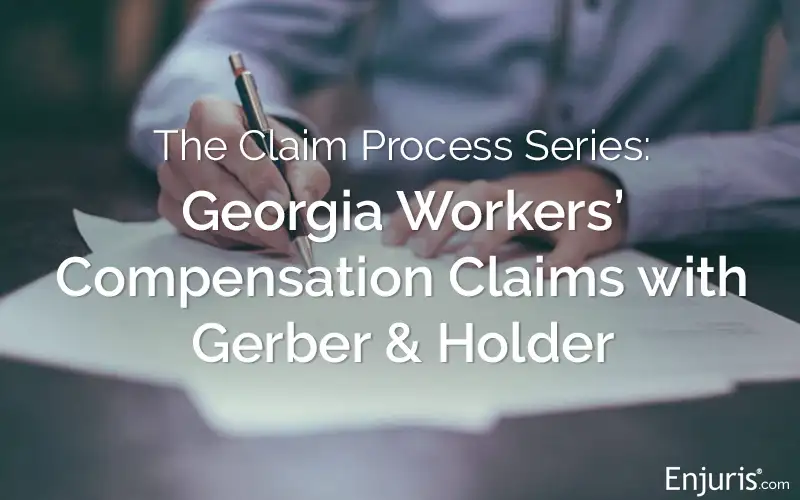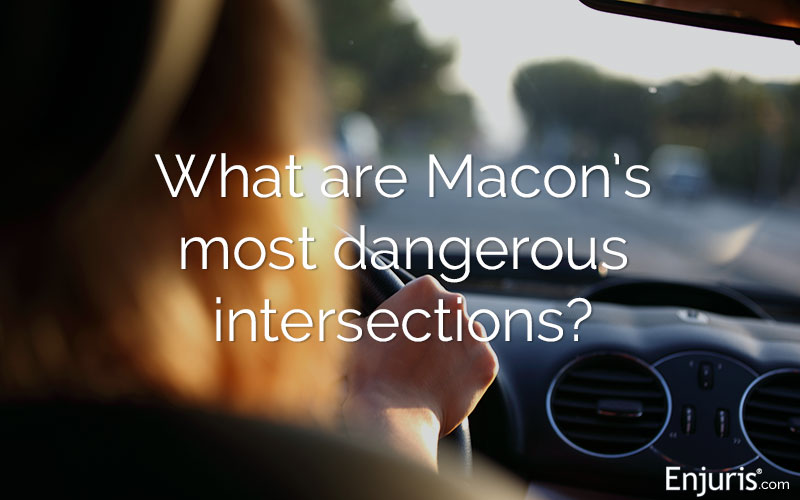What you need to know about workers' compensation claims in Atlanta and throughout the state
When you're hurt in Georgia in the course of your employment, you are legally allowed to seek compensation for your injuries. The best way to remedy this situation would be to file a claim under the workers' compensation insurance policy held by your employer. But receiving workers' compensation benefits is not an automatic process, and the insurance company may choose to deny you benefits. In some cases, appeals are necessary. That's when an experienced workers' compensation attorney comes into play.
Workers' compensation allows injured workers to gain access to benefits quickly and also provides vocational training if they are unable to return to their previous employment. This also means the employee gives up the right to pursue additional compensation from their employer (most of the time).
Georgia is a no-fault statutory system, meaning that even if you contributed to your own injuries, you can still receive benefits.
Who is covered by workers' compensation insurance?
The simple answer is anyone in Georgia who is a W2 employee, not an independent contractor, is required by law to be covered by workers' comp insurance.
Private and public employers in Georgia, with limited exceptions, must provide workers' compensation insurance for their employees if three or more full or part-time persons are employed (this includes family members).
Certain types of employment might not be covered by workers' compensation. This is a partial list of the industries that are exempt from mandatory coverage by the Georgia Workers' Compensation Act:
- Railroad carriers
- U.S. government agencies
- Farm laborers
- Domestic servants
- Independent contractors
What to do after a workplace injury
To make sure you receive the maximum in workers' compensation benefits, you should do the following:
- Seek emergency medical treatment if necessary
- Report the injury to your employer immediately, or as soon as possible (you must tell your boss within 30 days in Georgia)
- Consult with physicians specified by employer
Can I work while receiving workers' comp benefits?
What your employer must do after a workplace injury
When an employee is hurt on the job, the Georgia Department of Labor states that the company should investigate as soon as possible. Facts about the accident must be gathered and made ready to share with the insurance company at their request. Georgia law also requires an employer to inform the insurance company of any injuries to their employees, regardless of how minor they are.
This doesn't mean your boss is readily admitting fault – it's just a statement that an employee was hurt and will be making a claim. If your employer questions whether your injury is actually work-related, then your employer will note this on the first report form. For instance, maybe you were out delivering packages for your company, but stopped to get coffee and slipped on the floor — hurting yourself in the process — then it may be argued that it wasn't work-related.
Timely filing is imperative because your employer's insurance company can't pay you benefits (which means you can't pay your bills) if it doesn't know the details about your injury. That's why timely filing requirements come with a penalty for lateness.
After your boss has reported the accident to the insurance company, the insurer must then report your accident to the Occupational Health and Safety Administration (OSHA) within 24 hours.
What injuries are covered under workers' compensation?
Workers' compensation is extremely valuable when you are injured. Getting access to full benefits, however, can be a challenge.
With few exceptions, no matter who was at fault for your injuries, work-related mishaps are covered in Georgia. The most common workers' compensation injuries are:
- Industrial accidents
- Slip and falls
- Overexertion
- Machine entanglements
- Falling objects
- Vehicle accidents
- Repetitive motion injuries
Your benefits could be reduced if the insurance company determines you were using drugs or alcohol at the time of the incident; you willfully did not use provided safety devices; or you did not obey a reasonable, written and posted safety ordinance.
Read our complete guide on the 7 steps of the workers’ compensation claim process.
Georgia workers' compensation benefits overview
Georgia allows for the coverage of authorized medical expenses and reimbursement of lost wages. Benefits include:
- Temporary total disability (TTD): temporary but total disability, unable to work
- Temporary partial disability (TPD): return to work with modified job duties, reduced hours and wages
- Permanent partial disability (PPD): permanent loss of function of a body part or bodily system; treating physician will assign a percentage of permanent impairment, which affects benefits
- Permanent total disability (PTD): totally and permanently disabled; benefits based on impairment rating system
Will my company take care of me?
While company loyalty isn't what it used to be, many workers do feel an affinity for their employer. We all hope our employer will do their best to help us after being injured while trying to contribute to the company. They wouldn't leave you stranded and having to pay all those medical bills alone... right?
Your employer might be great when everything is operating normally. An expensive workplace accident, however, is not considered a normal occurrence, so you may be surprised when your company seems to be more concerned with protecting itself rather than you.
Workers' compensation is, unfortunately, a type of insurance. Insurance premiums go up when businesses make claims. Your company wants to save money because the first concern of any business is its bottom line. If the company is public, this becomes even more important because shareholders become an issue. Their interests will come before yours.
Can I sue my employer in Georgia?
Normally, if you pursue benefits under workers' compensation, you forego the right to sue your employer in court. There are situations, however, in which you can sue for damages caused by your injuries.
Exclusive remedy
Workers' compensation statutes across the country, including Georgia, limit a worker's remedies for work-related accidents. As such, workers' compensation insurance is referred to as “the exclusive remedy” for injured employees.
According to the American Bar Association, if a court wishes to allow a tort action against an employer (e.g., for sexual harassment), it will find that the injury isn't covered by workers' compensation. Additionally, an employer who doesn't obtain required coverage will not be protected by this “exclusive remedy” provision. This means if your boss doesn't carry workers' compensation insurance, you could potentially pursue a lawsuit against them for compensation.
If a Georgia employer intentionally causes injuries
Some states don't allow employees to sue for intentional injuries, but Georgia does allow this right of action. This applies to egregious or reckless conduct on the part of your employer, such as:
- A company owner engages in a physical altercation with an employee
- A company owner is found to be grossly negligent in hiring an employee who caused injury or assault
- An employer failed to provide proper safety gear at a work site
- When dual capacity applies, such as if an employer has a second legal relationship or affiliation that harmed the worker, like:
- The company manufactures a product for public sale that causes injury
- A company doctor causes harm to an employee
- The employer owns property with dangerous conditions that harmed an employee
Suing a third party
There might be some instances in which another party, such as the manufacturer of an industrial machine used at your job, may be held liable for your injuries.
Employers will prefer to stay out of the way if you decide to sue a third party. However, they might also join in your legal action if the manufacturer created a dangerous condition because of its negligence. Conversely, if the employer knew or should have known that a product wasn't working correctly or was broken, the employer might also be held liable this way.
This type of case can be wide-ranging. For example, say you were burned by a toxic chemical at your employer's plant. You might be able to file a toxic tort lawsuit against the chemical's manufacturer.
Wrongful termination in Georgia
If you're fired because of a workers' compensation claim you filed, you may very well have the foundation for a lawsuit. Georgia allows for “employment at will,” meaning that unless otherwise outlined in a contract, an employer isn't required to provide a reason or advanced notice for termination.
There is, however, an exception called the Violation of Public Policy, which says an employee can't be terminated for filing a workers' compensation claim or even for threatening to sue.
Bad faith lawsuits against workers' compensation insurers
Insurance carriers who handle workers' compensation claims in Georgia have specific obligations, such as the duty to investigate an employee's claim or pay benefits they're entitled under state law. If the company doesn't perform this investigative duty, or if it misleads the employee in any way, the insurance company is potentially “acting in bad faith.” This means that it can be sued for both economic (medical bills, property damage, etc.) and non-economic damages (pain and suffering, loss of consortium, etc.).

Damages worksheet to track expenses for your injury claim (medical treatment, property damage, lost wages, prescriptions)
Download in PDF format
Courts are the best avenue for resolving bad-faith insurance claims, not administrative agencies. In Georgia, the insurance carrier is primarily liable to the employee, meaning you can sue an insurance company when it does any of the following:
- Makes a claim decision contrary to what an investigation showed
- Misleads an injured worker seeking compensation
- Doesn't investigate claim in a timely manner
- Intentionally delays payments of benefits
- Contradicts established claim practices
- Hides or manipulates evidence
- Tries to dictate medical care to injured worker
Do I need an attorney for my workers' compensation claim?
As always, the answer depends on your unique situation. Workers' compensation benefits are incredibly useful and keep people on their feet during tough financial times. However, the amounts can be low, and there is no accounting for pain and suffering.
It's a good idea to talk to a local workers' compensation attorney who also knows personal injury law. Workers' compensation is a tricky area of law that's rarely taught in law school; it's considered a specialization that is often learned on the job.
However, there are times when you don't need an attorney. Sometimes you can handle your workers' compensation case solo. But if you experience any resistance from your employer or the insurance company, don't take any chances — talk to a local attorney immediately.
More resources
- Find an attorney using our Personal Injury Law Firms Directory.
- Learn more about getting Social Security disability benefits for your injuries.
- Learn how to recognize a traumatic brain injury.
- Eligibility for Workers’ Comp in Georgia
- How Georgia Treats Occupational Diseases and Illnesses
- Industrial Accidents in Georgia: What You Need to Know
- Injuries and Illnesses from Hazardous Chemical Exposure at Work
- The Impact of a Pre-existing Condition on a Georgia Workers' Comp Claim
- The Settlement Process for Workers’ Comp in Georgia
- Types of Workers’ Compensation Benefits in Georgia
- Why You Need a Georgia Workers’ Comp Attorney
- Workers' Compensation for Construction Accidents in Georgia
- Workers’ Compensation Claims for Injured Truck Drivers in Georgia
- Workers’ Compensation Fraud in Georgia
Did you know that workers' compensation law varies by state?
What does an injury lawyer do?
A personal injury lawyer helps individuals who have sustained injuries in accidents to recover financial compensation. These funds are often needed to pay for medical treatment, make up for lost wages and provide compensation for injuries suffered. Sometimes a case that seems simple at first may become more complicated. In these cases, consider hiring an experienced personal injury lawyer. Read more
There are several dangerous intersections in Macon and some unsettling local data about traffic accident fatalities in recent years. Learn about the statistics, laws and how to find an injury lawyer.
More on Macon car accident statistics & what to do after a crash
















